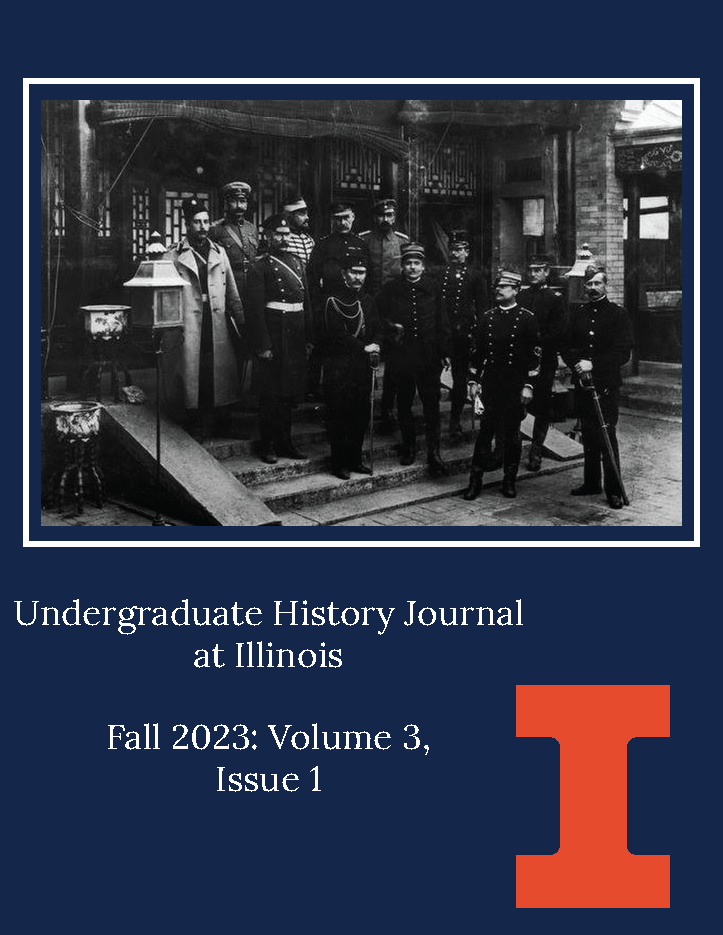“Semblance of a Sabbath” The Complex Relationship of Christianity and Slavery in the British Empire
Main Article Content
Abstract
In the world’s largest empire, the sun is said to never set. In the peak of the British Empire’s power, wealth and opportunities for Britons in the expansive empire were plentiful. The entirety of the British Empire’s history, from rise to fall, lasted more than two centuries and is filled with triumphs and failures in a multitude of fields, none more so than slavery. At the height of the British Empire, the institution of slavery was a disturbing cornerstone in the economic practices of the metropole and auxiliaries. The study of the British Empire, from sunrise to sunset, is important to understanding global history and the institution of slavery.
Article Details
Section
Articles
Submitted manuscripts must have not been submitted elsewhere, are not currently under review elsewhere, and have been submitted with full knowledge of faculty and research team collaborators. Any manuscripts that do not meet originality requirements will be rejected without peer-review. All manuscripts will be reviewed based on intellectual content without regard for age, gender, race/ethnicity, sexual orientation, country of origin, or political philosophy of the authors. All manuscripts submitted for peer-review are kept strictly confidential by editors and reviewers. At no time will editors or reviewers utilize submitted materials without the consent of the authors. The purpose of UIHJ is to encourage undergraduate research pursuits and not to hinder the author's ability to publish their work in other relevant journals. After publication in UIHJ, the author reserves the right to present any part of their research in any form in other publications or proceedings. UIHJ reserves the right to reproduce and reprint any materials published for instructional and promotional purposes.
By submitting any material to UIHJ, you agree that your work is original, unless otherwise specifically acknowledged. See agreement.

